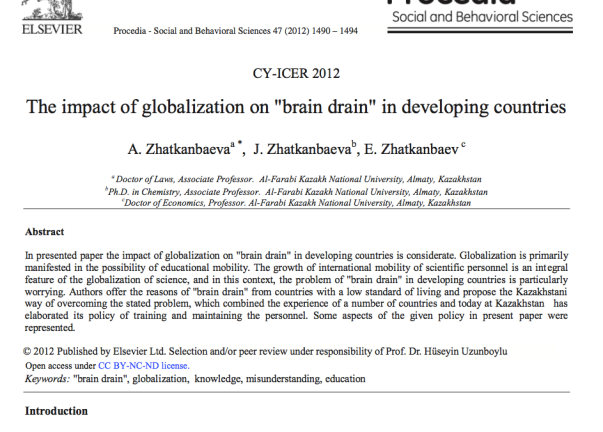The video is prepared by Next School which promotes upgraded educational curriculum under the highly innovative Big Picture Learning framework. The video explores some major problems that current educational system encounters in most parts of the world. The creators are claiming that current traditional educational system is outdated and needs to be refreshed. Although this video is mostly about an Indian and American school type, I try to connect it with Kazakhstani context. Let’s see if their arguments coincide with our situation.
The main argument of the video is that the real world is rapidly changing whereas, school system remains the same and not changed in hundreds of years. They claim that children are not prepared to real-life situations as schools have been established in an Industrial Age and have that mentality. Unfortunately, the writers do not provide an exact context within the video, that is why I investigated it myself and found that it was about India and U.S. However, if to contrast their claim with Kazakhstani situation, it exactly underlines our current situation. For instance, three months of summer holidays were designed in early 1930 to create a labor term which was a part of industrialization. According to the People’s Commissariat for Education of USSR, it ended in 1980. But, interesting to note that three months of summer holidays still exist in Kazakhstan up to these days. Here, I was convinced that traditional school system is a legacy of an Industrial Age.
The next argument provided by the creators of Next School is the lack of autonomy and excess of control among children. They claim that “Industrial Age values lack of autonomy” and “every minute of a child’s life is tightly controlled”. Here, if to compare the situation with Kazakhstan, I completely agree that today there is a deficiency in autonomy among children, teachers and even principals. I speculate it to be a reminder of the Soviet times. Although I accept it as an aftermath of that times, I truly value the past education. But, education should coincide with the demands and globalization, not history. It is true that every minute at school is controlled as 7 lessons per a day and 40 minutes’ lessons with 5 minutes of break. The child’s control, however, a subject that can be negotiated by their parents and teachers, and to treat it as a consequence of an Industrial Age without good pieces of evidence might be an assumption.
The other problems with the traditional school system are “memorization” and “extremely standardized system”. Firstly, the authors argue that children memorize not having a chance to perform what they have learned as they forget about it after an exam. They support authentic learning type where children will be able to apply what they have learned in a real world. Again, I was convinced with their idea of changing memorization with authentic learning strategy, but they should have provided some examples. As from the personal experience, we used to memorize a lot at school and even university. By saying ““extremely standardized system” the scholars mean that every child receives the same materials to study. They claim that children’s abilities are different and should be treated so. It might be true that kids have different capacity and potential in performing school task, but I think it might be more convincing if the scholars used more concrete examples in dealing with such issues.
Overall, the video was designed for all stakeholders in the field of education starting from children to policymakers. Although some arguments needed to be supported by good pieces of evidence, I was convinced that our Kazakhstani education system needs to be updated and reformed. But, one thing that they did not mention is that change in education is mostly top-down process unless it is a private educational organization. I would suggest providing more concrete examples of solving these issues.
What do you think of this video?
Reference
Next School. (2016). 6 Problems with our School System.[Video file]. Retrieved from
